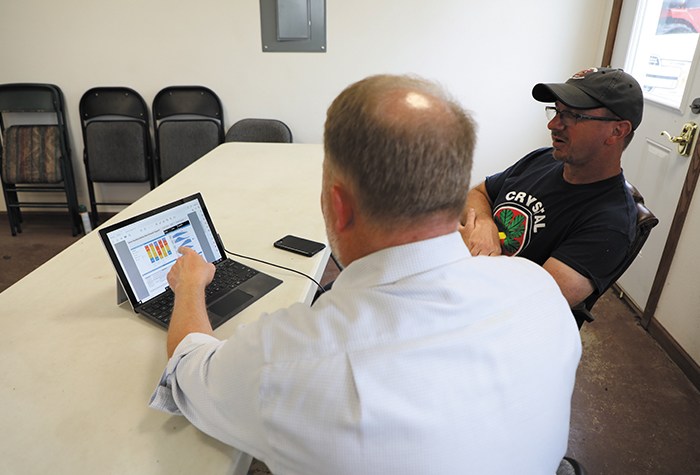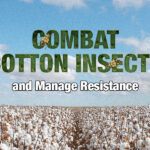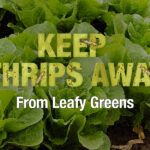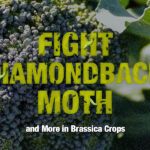Tell Your Sustainability Story
Data plays an important role in sustainability throughout agriculture’s supply chain.

Farmers have always been dedicated stewards of the land and invested in the sustainability of their operations, but they haven’t always successfully shared these stories with the public.
In an increasingly digital world, consumers expect increased access to and transparency from companies. It’s no different when it comes to the food they purchase. People are more eager than ever to understand the ingredients in their food, how those ingredients were cultivated, and the environmental impact of it all.
The consumer’s quest for knowledge seeps through the agriculture supply chain, trickling all the way down to the growers whose crops are processed into grocery store offerings. How can the agriculture industry understand and share its sustainability story? Data, both quantitative and qualitative, plays an important role.
All About the Data
Agricultural sustainability encompasses environmental, financial and social sustainability. No matter which facet is examined, Jeff Lail, senior data analyst at Syngenta, says understanding sustainability at the farm level begins with gathering data points to set a baseline and support future tracking efforts.
“Data tracking on farm is similar to maintaining a household budget,” Lail says. “It’s easier to save money when you’re keeping track of what you’re spending. Similarly, having a good understanding of where your farm resources go will help you manage those resources better.”
Daniel Olson, a sugarbeet, pinto bean and wheat farmer from North Dakota, agrees that taking stock of your current sustainability efforts is important.
“You have to take inventory of where you’re at to establish if you’re headed in a positive or negative direction,” Olson says. “This baseline will also help you determine down the road if the practices you think are helping you actually are.”
While setting a baseline is a crucial first step in calculating sustainability, Lail says the real benefit is in the change that comes from that measurement. To help growers achieve both measurement and change, Syngenta created the Cropwise™ Sustainability app.
One Size Doesn’t Fit All
The Cropwise Sustainability app experience begins with a quick self-assessment called the Sustainable Outcomes in Agriculture (SOA) standard that gathers qualitative and quantitative information in six key areas: crop production, water impact, soil health, biodiversity and habitat, human and animal well-being, and community leadership. After completing the assessment, an intuitive digital dashboard populates with sustainability scores in each area, recommendations for improvement, and the opportunity to see how scores compare to other app users in a specified geography.
“The process of measuring and tracking sustainability followed by figuring out what to do with that data has been a real pain point for growers,” Lail says. “With the Cropwise Sustainability app, we tried to lower that difficulty level by identifying where a grower can improve the most and offering recommendations that don’t require overhauling farm operations.”
Olson, who completed the SOA standard, appreciated the diversity of sustainability practices considered by the assessment in addition to the geographical insights.
“There is no ‘one size fits all’ approach to sustainability,” Olson says. “How I manage sustainability in North Dakota will be very different from someone in another geography.”
As helpful as this app is at the farm level, its impact extends deep into the agriculture supply chain.
Building Bridges Between Growers and Consumers
Trent Wimmer, key account sustainable solutions lead at Syngenta, helps growers and other agriculture industry partners tell their sustainability story with tools such as the Cropwise Sustainability app.
“Let’s say you’re a consumer packaged goods company, and you’re trying to understand your greenhouse gas footprint and communicate it to end-consumers,” Wimmer says. “You can only manage what you have in front of you, which is
the manufacturing of the products — you don’t have direct access to what went into the ingredients that you’re processing. That’s where Syngenta can help connect the dots between manufacturers and growers.”
For instance, Syngenta partnered with United Sugars, a sugar supplier, to help bridge the gap between growers and consumer packaged goods companies by implementing the SOA standard self-assessment with a group of sugarbeet farmers, including Olson, in Minnesota’s Red River Valley.
The assessment was mutually beneficial. Growers received sustainability insights and actionable recommendations as a result of the SOA standard, and United Sugars provided the anonymized data to their customers to help complete the sustainability picture for the foods they produce.
According to Wimmer, Cropwise allows Syngenta to “collect meaningful data from growers and in turn provide valuable sustainability insights.”
“Partners like United Sugars can take the data from the SOA standard and tell a much more unique sustainability story to their own customers,” he says.
Growers also benefit from these sustainability tools. “Syngenta is a grower-centric company that is also committed to regenerative agriculture,” Wimmer adds. “Helping growers understand and share their sustainability story is a way that we add value to growers beyond just yield.”
Donna Isakson, sales and marketing manager at United Sugars, values the partnership with Syngenta and the leadership they’ve provided in calculating sustainability efforts.
“The goal of our partnership with Syngenta is to be more transparent with our customers and show them what United Sugars is doing from a sustainability perspective,” Isakson says. “Syngenta has been so helpful in navigating this as they have expertise in both working with growers and in ag technology and data.”
4 Min Read
- Data capture plays an important role in a farm’s sustainability story.
- Tracking their practices can help farmers quantify their sustainability results.
- A newly released app from Syngenta helps farmers efficiently track on-farm sustainability data.
More Articles About Tech & Research
RECOMMENDED FOR YOU
4 Min Read



















